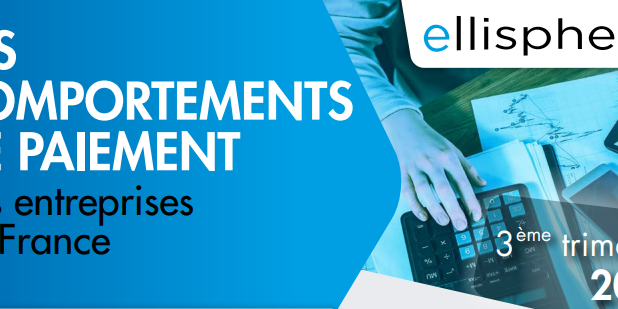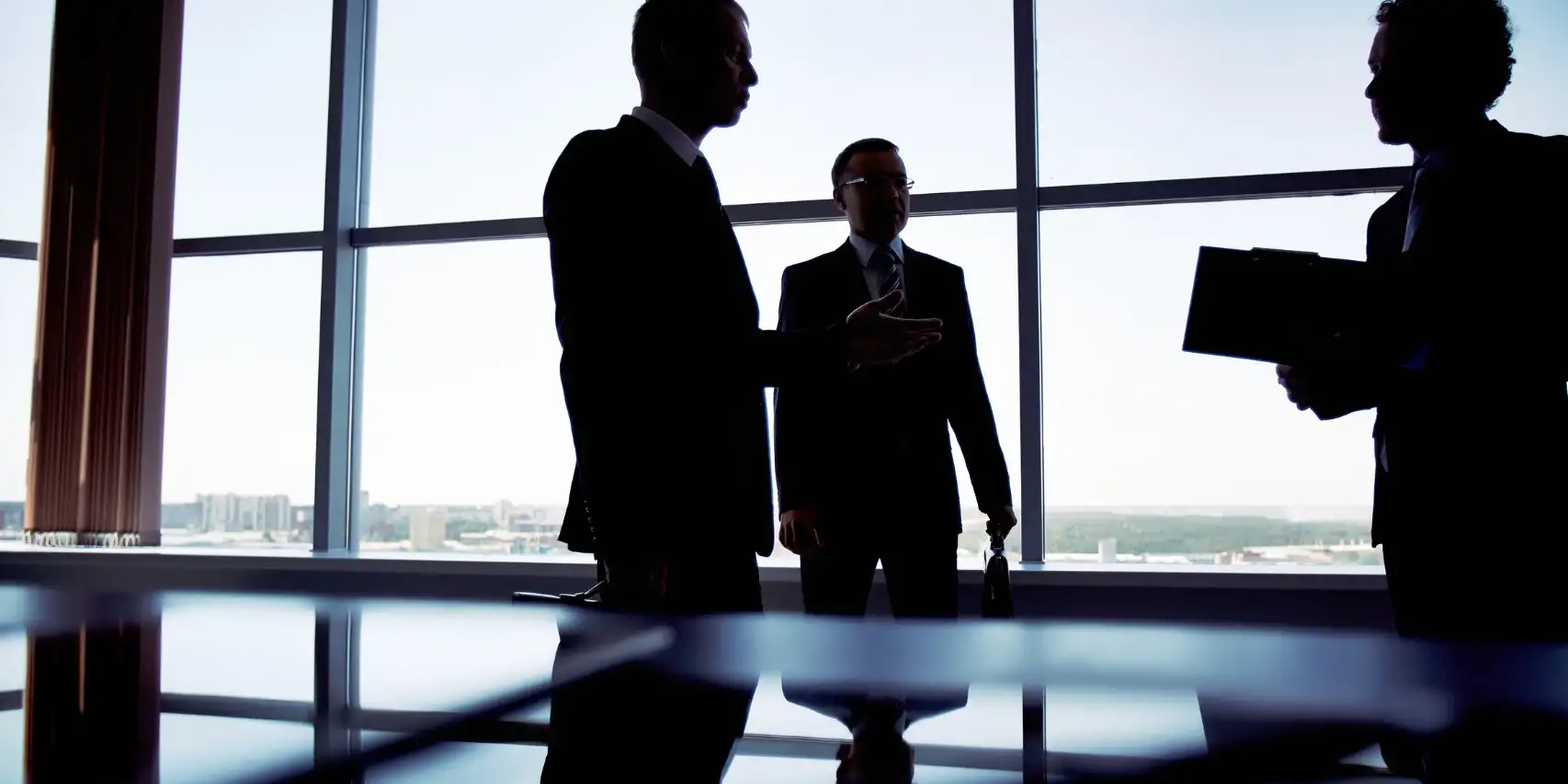Interview
Meeting with Jean-Luc Izoard, Administrative and Financial Director of Artémis, holding company of Ellisphere

Can you tell us about yourself, your background, and what led you to become CFO?
I have an agricultural engineering background. I worked for a few years as a developer of very specific applications, within a structure linked to the SAFER. Then, I had a long banking career in various investment banks as a corporate account manager.
I then joined Natixis as a key account manager, before joining a family-owned group in Lyon as CFO, where I stayed for about ten years; I also created the position of CFO. I then moved on to the position of Deputy Managing Director of this group, which I left in 2014 to join Ellisphere with very clear objectives: to participate in the turnaround of the company, and to take it out of the Natixis fold to take off again. This is what we have done!
It is a rich and varied career that has allowed me to be confronted with very diverse sectors of activity, to discover a lot of things by opening my mind to many types of companies, and thus to develop a strong capacity to adapt.
How would you define your main missions within Ellisphere today?
I believe that the major missions I have at Ellisphere are the major missions that a CFO should have.
Firstly, a CFO is there to light the way. He or she must support the general management in developing the company's strategy, and first and foremost, he or she must be able to shed light on the figures that enable the company to understand and manage. He must understand the company's environment, understand its business, understand its customers, who they are, where they come from, how they get to us, what they consume... And then how and why they leave us, unfortunately, one day or another. Finally, a CFO is also there to measure the company's performance and results, and to control costs - two major subjects: business and costs. This leads de facto to the elaboration of the business plan alongside the general management.
The second major mission of a CFO, once the road is clear, is to know how to chart the course of the future, whether in the form of internal growth and/or external growth. A CFO must design, implement and manage a financial strategy. This job can be very different from one company to another. For example, the management of an LBO group such as Ellisphere, whose controlling holding company is Artémis, is very different from the management of a family-owned group, which is subject to other shareholding requirements. In all cases, the financial director is at the heart of the relationship with all the financial partners, i.e. the banks, investors and associates.
The third major mission of a CFO is to be in charge of two "small factories": the order-to-cash process and the purchase-to-pay process. They deal with accounting, invoicing, customers, suppliers, reminders, collection, cash management and cash.
Finally, the fourth major mission of a CFO is to manage risks - that is, to be able to identify and manage them in order to secure the company. We are talking about customer and supplier risks. We also make sure that accounting and tax regulations are respected... We also consider the risks of cybercrime... Finally, we talk about governance in the broadest sense.
What skills are needed to deploy these missions?
The first skill is, in my opinion, that of a good team leader... Being able to listen, knowing how to surround yourself with the right experts.
A CFO must be a leader, and know how to give meaning to each function of a finance department, in order to develop a lasting cohesion within the team.
A CFO must also be an expert in the finance business. It may seem obvious, but the CFO job is very technical.
He is also a strategist, as we have already seen, since he accompanies the general management in the elaboration of the strategy, in the vision of the company.
Finally, a CFO must have a strong capacity for anticipation and adaptation. Because the path is never quite the one we had imagined. I believe that today, the ability to adapt is probably one of the major keys to the success of companies, and therefore to the role of a CFO.
You talk about anticipation. But in concrete terms, how can we deal with a crisis like the one we are currently experiencing, which no one could see coming?
In the case of the Covid-19 crisis, it was of course impossible to anticipate anything. The crisis arrived, we had to deal with it... With all the difficulties we know.
On the other hand, we can prepare ourselves to be able to face such a crisis. As I said earlier, a CFO must be able to consider risks that he has never encountered.
Finally, the best way to anticipate a crisis that we cannot see coming is to be able to imagine almost any crisis in order to prepare for it as much as possible. Always with the ability to adapt as we go along, to remain agile.
How does this play out in your daily work?
For me, agility, in a constantly changing world, especially in times of crisis, is the ability to anticipate faster and faster. To know how to modify, slightly or even significantly, one's trajectory, one's strategic lines, according to the context and its evolution.
Crises can also be opportunities, or simply gas pedals. For example, the current crisis has forced us at Ellisphere to accelerate our digital transformation.
This is a very recurrent and old topic in all the literature about finance departments. The digital transformation is already underway for many. However, the crisis has accelerated this transformation for one simple reason: everyone has found themselves somewhat, if not totally, physically cut off from each other.
We have accelerated this transformation enormously. For example, in our order-to-cash process, from the management of customer orders to the collection of their invoices. Our collection reminder processes are also largely dematerialized.
Today, all our customer contracts are digital. They can be signed electronically, whereas before, a contract was in paper format that had to be brought to the customer for signature.
In addition, the entire purchasing and supplier payment process is completely dematerialized. From now on, every supplier invoice that arrives at our company is digitized. Our payments are 100% dematerialized, even though this was already largely the case before the crisis.
Dematerialization was a key factor in managing this crisis. The fact that our company was already highly digitized before Covid-19 obviously helped us greatly. However, the crisis was undeniably an opportunity to improve our processes and to accelerate the digitization process we had begun.
What are the main benefits that you retain from this digitalization?
First of all, we have secured our processes. As a result, we have less risk of error, less risk of fraud, less risk of loss. In this respect, intensifying our digitalization has been a real shield for our company in times of crisis.
We continued to pay our suppliers at the height of the crisis, absolutely normally. We have reduced our costs, if only by drastically cutting down on paper printing and mailing of customer and supplier mail.
Of course, all this requires adaptation and support for the teams: new work organizations, new tools, new processes. In fact, a training plan for employees is often necessary as part of the change management process.
As I mentioned earlier, we have been working on these issues for years at Ellisphere. However, the crisis has acted as a kind of stress test that has pushed us to move faster in the dematerialization of our processes, particularly in the finance department.
To conclude perhaps, I think the time was right for this change, especially as regulatory requirements are changing. In three years, all companies will be required to issue electronic invoices. One thing is certain: Ellisphere's finance department will be ready for this new deadline!



